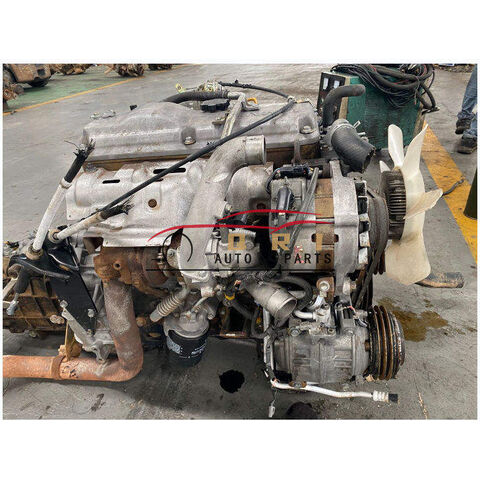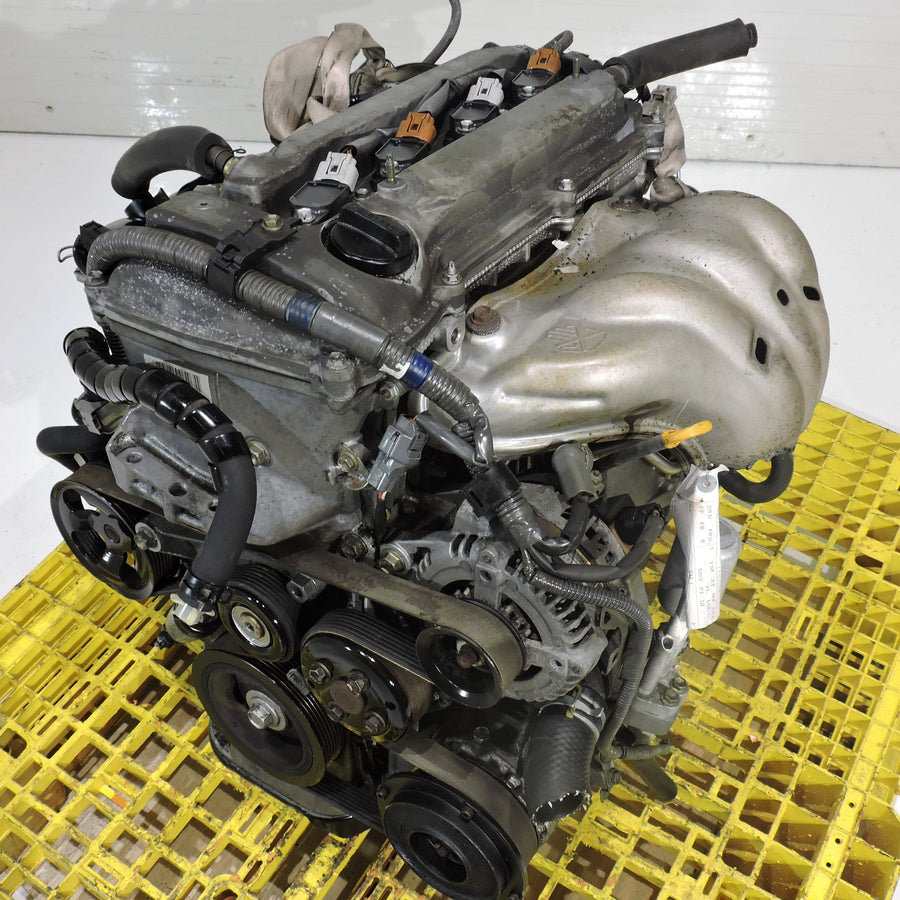Discover What Makes the Toyota RunX RSI a Vehicle driver's Favorite
Discover What Makes the Toyota RunX RSI a Vehicle driver's Favorite
Blog Article
Explore Top Quality and Worth: Your Guide to Buying a Used Engine
When taking into consideration the purchase of a pre-owned engine, comprehending the intricate equilibrium in between top quality and worth is paramount. A comprehensive assessment of engine background, dependability, and problem is important to make sure an audio financial investment. By carrying out appropriate examinations and study, prospective purchasers can navigate the intricacies of the market much more successfully. The nuances of warranty alternatives and prices methods can substantially influence the overall decision-making process. As you contemplate these factors, one inquiry stays: what particular elements will inevitably direct your choice in this essential investment?
Recognizing Engine Types
When considering the acquisition of a used engine, comprehension of the different engine kinds is crucial for making a notified choice. Engines can normally be categorized right into 2 major kinds: inner combustion engines and electric engines.
On the various other hand, electric engines make use of power stored in batteries to power the car, providing a cleaner alternative with less relocating components and decreased upkeep demands. Within these groups, there are additionally distinctions, such as two-stroke versus four-stroke interior burning engines, and various electrical motor arrangements.
Comprehending these differences is essential, as they influence performance, compatibility with existing car systems, and long-term functional prices. By acquainting oneself with the various kinds of engines readily available, potential purchasers can much better analyze their needs and choose that line up with their lorry's needs and their individual choices.

Examining Engine Condition
A complete examination of engine problem is extremely important for anyone thinking about the purchase of a used engine. Begin with a visual inspection; look for indicators of oil leakages, deterioration, or any type of physical damages to the engine block. A tidy engine is commonly a sign of excellent upkeep techniques, while too much grime may suggest neglect.
Following, evaluate the engine's parts, consisting of the timing belt, gaskets, and seals. Search for wear and tear, as these parts can be costly to change. In addition, check out the engine places, as harmed places might cause vibrations and further mechanical issues.
A compression examination is important to determine interior engine health and wellness. Uniform compression throughout all cylinders suggests a properly maintained engine, whereas substantial inconsistencies might point to interior damage or wear.
Listening to the engine during a startup can supply useful understandings; any type of unusual sounds, such as knocking or rattling, might recommend deeper problems. If feasible, request a test run to review performance under lots. By thoroughly evaluating these factors, potential customers can make educated choices and safeguard a quality second-hand engine.
Monitoring Engine Background
Understanding the engine's background is essential for making a knowledgeable purchase. Knowledge of previous usage, maintenance documents, and any past problems can dramatically affect the engine's dependability and long life. Begin by asking for the automobile recognition number (VIN) or engine serial number, which permits you to map the engine's background.
Use offered sources, such as Carfax or AutoCheck, to obtain an automobile background record. This record here will certainly provide essential understandings, consisting of accident history, service records, and previous possession information. Toyota RunX RSI. Pay particular attention to any type of indicators of serious damage or repeated repair services, which might show underlying problems
Inquire concerning maintenance routines carried out on the engine. Routine oil adjustments, timing belt replacements, and other precautionary actions show accountable ownership. Additionally, ask if the engine has undergone any modifications, as non-standard modifications can influence efficiency and compatibility with your automobile.
Finally, when possible, seek confirmation from a relied on auto mechanic that can examine the engine's condition based upon its background (Toyota RunX RSI). This detailed examination will aid you avoid possible challenges and make sure that your investment is worthwhile and audio
Warranty and Return Policies
Buying a used engine usually features differing guarantee and return policies that can substantially affect your choice. When thinking about a used engine, it is vital to completely review the service warranty options given by the seller. Some suppliers may supply limited warranties that cover certain components for a specified period, while others could provide even more thorough insurance coverage. Understanding the conditions and terms affixed to these guarantees is essential, as they can affect the long-term worth and reliability of your purchase.

Additionally, trusted vendors commonly provide documentation that describes the warranty and return procedure, making certain openness. Constantly request for this details before finalizing your acquisition. A well-defined guarantee and return policy can offer peace of mind and secure your financial investment, making it an integral part of the decision-making process when acquiring a used engine.
Locating the most effective Deals
When her explanation looking for the best bargains on a used engine, it is crucial to carry out extensive research study and compare rates from different vendors. Begin by exploring on-line industries, auto discussion forums, and regional salvage backyards to collect a thorough understanding of the marketplace. Utilizing cost contrast tools can improve this procedure, highlighting affordable rates throughout various platforms.

Consider timing your acquisition strategically. Seasonal variations sought after can impact costs, with specific times of the year using better offers. Additionally, be open to discussing rates; several sellers might be prepared to lower their asking price, particularly if the engine has been detailed for an extended duration.
Final Thought
In recap, these details acquiring a used engine necessitates a complete assessment of quality and value. Evaluating engine problem through examinations and assessments, confirming its history, and recognizing guarantee and return plans are vital steps. In addition, comparing prices across different vendors guarantees the most effective economic choice. By sticking to these standards, purchasers can improve their possibilities of getting a dependable engine that satisfies their demands while preventing prospective challenges related to second-hand purchases.
When taking into consideration the acquisition of a used engine, understanding of the numerous engine types is necessary for making a notified choice. Engines can normally be classified right into 2 primary kinds: inner burning engines and electrical engines. Gas engines are normally lighter and rev higher, making them appropriate for performance vehicles, while diesel engines are renowned for their torque and fuel performance, usually preferred in durable applications.
An extensive evaluation of engine problem is extremely important for any person thinking about the acquisition of a second-hand engine. Beginning by asking for the car recognition number (VIN) or engine serial number, which allows you to trace the engine's background.
Report this page